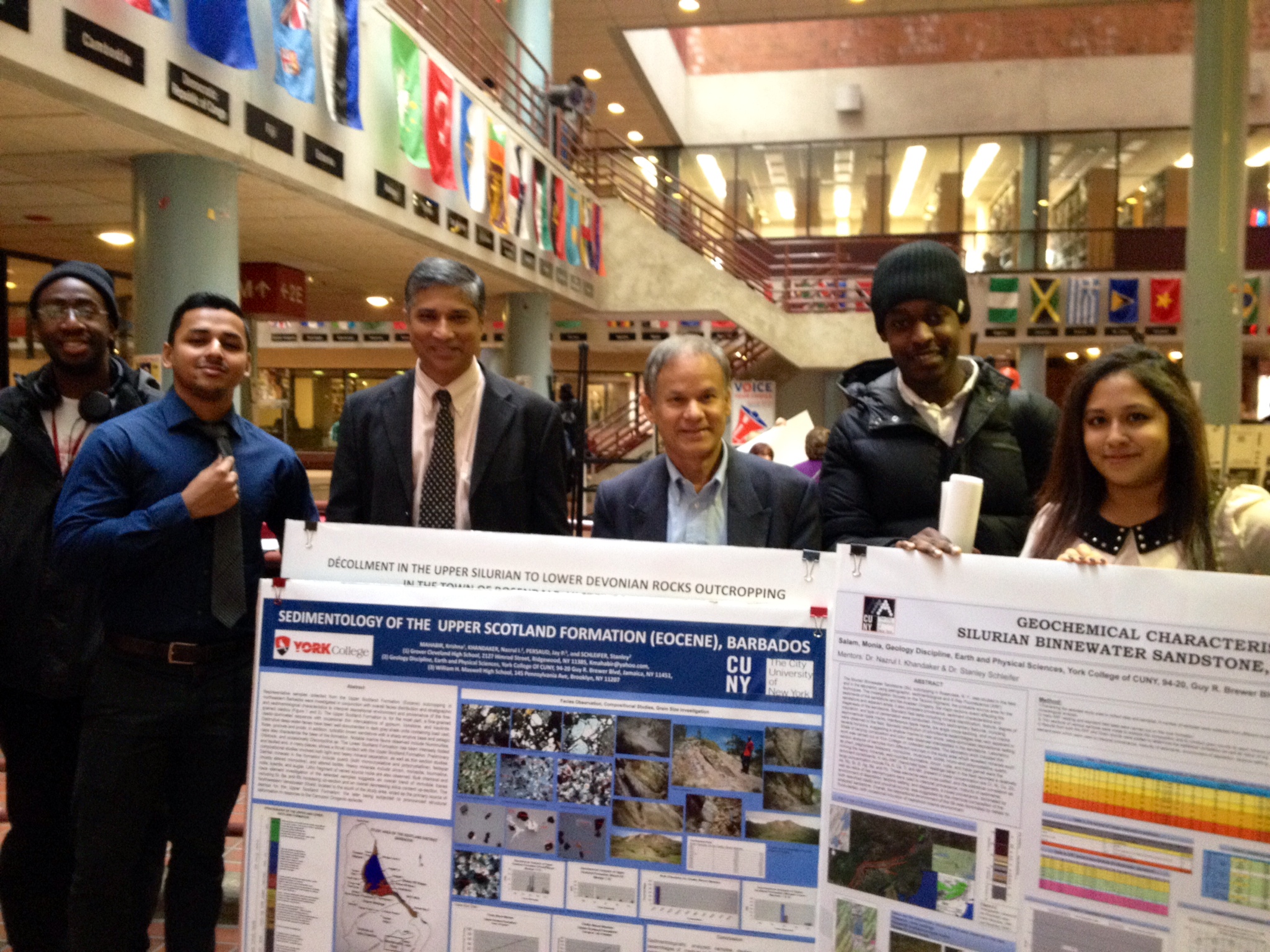
On Tuesday Dec. 9, Jim Roberts, deputy commissioner of New York City Department of Environmental Protection (DEP) made a special appearance at York College where he was the panelist for the Environmental Health Club’s “Green Talk Series.”
The main objective of the “Green Talk Series” was to address environmental problems surrounding York College, and the persistent problem of flooding within the south-east Queens community, according to Environmental Health Science director, Dr. Ratan Dhar.
During his discussion, Jim Roberts covered several issues such as flooding, sewer backups, storm water management and the contamination of groundwater in the Queens community.
Roberts said that the rising levels of the ground water and sewer overflows and backups are some issues that they are facing. Roberts said that he is well aware of flooding in the area, and, like most coastal cities, whenever it rains the DEP is unable to treat both storm water and sewer waste, so they have no other alternative but to release untreated water into the ocean. The rising level of the groundwater is also another reason why south-east Queens is prone to flooding.
“We do monitor the groundwater table at all the well sites that we have,” Roberts said. “We have data that is typically representative. To reconstruct the groundwater stations that we’re gonna put back on the line, we’re going to have to do some public outreaching. It becomes one of the more challenging things that I have in my job.”
For many years York has had issues with flooding in its sub basement, which is caused by the rising levels of the groundwater. After southeast Queens switched from a local water supply company that pumped from beneath the ground to the upstate water supply system, water levels started to increase and it made all low-lying neighborhoods prone to flooding. Usually some cities that sit above an aquifer have the ability to install wells and extract clean drinking water from the ground and keep the water table at levels that won’t flood neighborhoods. The deeper the well, the purer the water, though the cost may increase enormously.
“I was trained to be a professional engineer, but I also have to realize that I live in a political environment as well,” Roberts said. “We’re required to look at potential contaminants and what is going on in the areas around all of our wells. We take that information in terms of contaminants along with the site monitoring that we do.”
According to Dhar, the DEP would be the ideal agency to work with along with York and the wells in the area.
“I am considering doing our own assessment of the other stations that are available in order to give us more data or it could corroborate the data that we have,” Roberts said. “We can certainly talk about the two wells that are on your site.”
According to Dhar, the EHS program intends to work along with the DEP so that they can resolve some of the environmental issues affecting York College and the southeast Queens community. He said that at the moment they are doing water testing and sampling from two monitoring wells at York.
“The DEP is willing to extend their cooperation to work with York College, they want to open the collaboration with York College, certainly it will benefit the students and they will have some basic training before they go for their careers or jobs,” said Dhar. “One of the things that came out from the discussion is the deputy commissioner was very willing to help the instrumental tool like the wells we have which will provide the information for the community.”
The aquifer that Queens and parts of Brooklyn sit on is contaminated by the dry cleaning agent PCE, also known as perchloroethylene, the result of a number of massive spills from a dry cleaning company that was located in South Queens for 23 years. Though the “Green Talk Series” turned out successful, and somewhat promising, some experts still have mixed feelings.
“I think he was able to relate to the problems in the neighborhood, and also the role of DEP in resolving some of the problems,” said Dr. Nazrul Khandaker, Geology coordinator at York. “The ground water here is contaminated with the laundry detergent chemicals called perc, so I’d like to hear some kind of remediation for those contaminants as well because that groundwater is a vital resource in the area. If somehow steps are taken to clean it then it might be reused for domestic consumption and all other industrial purposes.”
Members of the York College Environmental Health Club said that in addition to solving some of York’s issues, members of the Environmental Health Club said one of the main purposes of the “Green Talk Series” was to generate more awareness and activism on campus among students and faculty.
“Basically it was a positive outcome because what we wanted to do was to raise awareness in York College. A lot of people are not familiar with Environmental Health Science,” said senior EHS member Michael Lateef. “The speaker is very prestigious, he addressed some issues that was going on and he gave us some advice how to proceed.”


